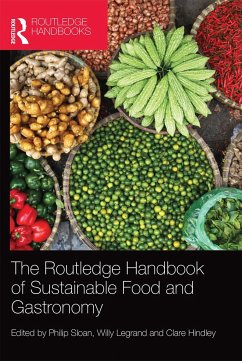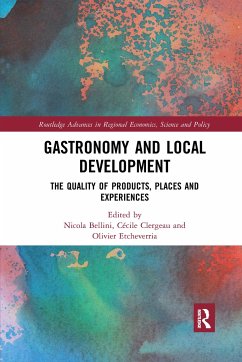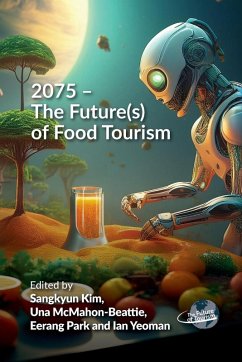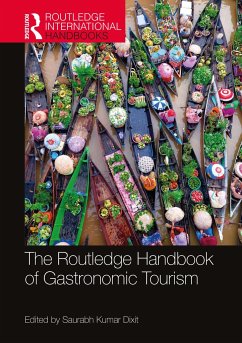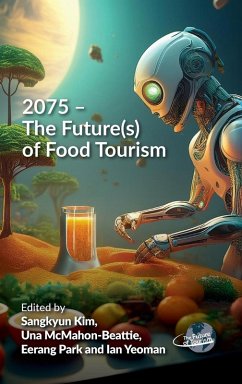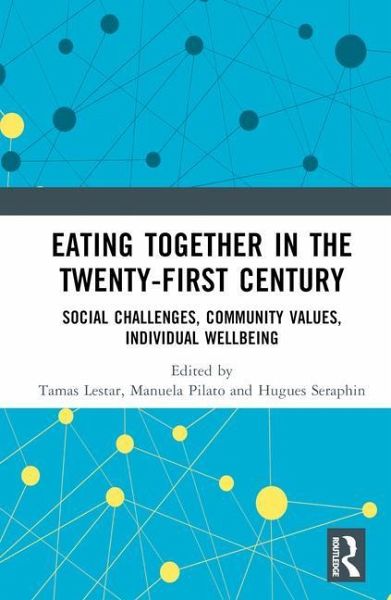
Eating Together in the Twenty-first Century
Social Challenges, Community Values, Individual Wellbeing
Herausgegeben: Lestar, Tamas; Manuela Pilato, Manuela; Séraphin, Hugues

PAYBACK Punkte
77 °P sammeln!
This book provides in-depth perspectives on communal food and dining practices. In doing so, it challenges less sustainable lifestyles that are encouraged by a social system based on unlimited economic growth.In considering the diverse societal settings in which individuals and communities eat, the book offers opportunities to reflect on the concept of belongingness, or the lack of it, when eating. It examines what, how, and why we eat together and considers what the future of our food and eating may look like. A wide range of themes are explored, with examples from Finland, Algeria, Europe, a...
This book provides in-depth perspectives on communal food and dining practices. In doing so, it challenges less sustainable lifestyles that are encouraged by a social system based on unlimited economic growth.
In considering the diverse societal settings in which individuals and communities eat, the book offers opportunities to reflect on the concept of belongingness, or the lack of it, when eating. It examines what, how, and why we eat together and considers what the future of our food and eating may look like. A wide range of themes are explored, with examples from Finland, Algeria, Europe, and Asia drawing on topics such as and cases for interdisciplinary research, such as environmental impact, social inclusion, happiness, health, and well-being, to name a few of the areas where the importance of eating together is stressed across disciplines. The book explores the lived experience of diners and the contexts in which commensality takes place in the family circle andin communities. It emphasises how the practice of eating together plays a crucial role in satisfying deep-seated social needs.
The book bridges the gap between science, governance, professional practice, and everyday dieters to provide hands-on benefits and insights. It will be of interest to researchers and policymakers in the areas of food studies, food policy, cultural studies, gastronomy tourism, psychology, global health, religion, and spirituality.
Chapter 6 of this book is freely available as a downloadable Open Access PDF at http://www.taylorfrancis.com under a Creative Commons Attribution (CC-BY) 4.0 International license.
In considering the diverse societal settings in which individuals and communities eat, the book offers opportunities to reflect on the concept of belongingness, or the lack of it, when eating. It examines what, how, and why we eat together and considers what the future of our food and eating may look like. A wide range of themes are explored, with examples from Finland, Algeria, Europe, and Asia drawing on topics such as and cases for interdisciplinary research, such as environmental impact, social inclusion, happiness, health, and well-being, to name a few of the areas where the importance of eating together is stressed across disciplines. The book explores the lived experience of diners and the contexts in which commensality takes place in the family circle andin communities. It emphasises how the practice of eating together plays a crucial role in satisfying deep-seated social needs.
The book bridges the gap between science, governance, professional practice, and everyday dieters to provide hands-on benefits and insights. It will be of interest to researchers and policymakers in the areas of food studies, food policy, cultural studies, gastronomy tourism, psychology, global health, religion, and spirituality.
Chapter 6 of this book is freely available as a downloadable Open Access PDF at http://www.taylorfrancis.com under a Creative Commons Attribution (CC-BY) 4.0 International license.





